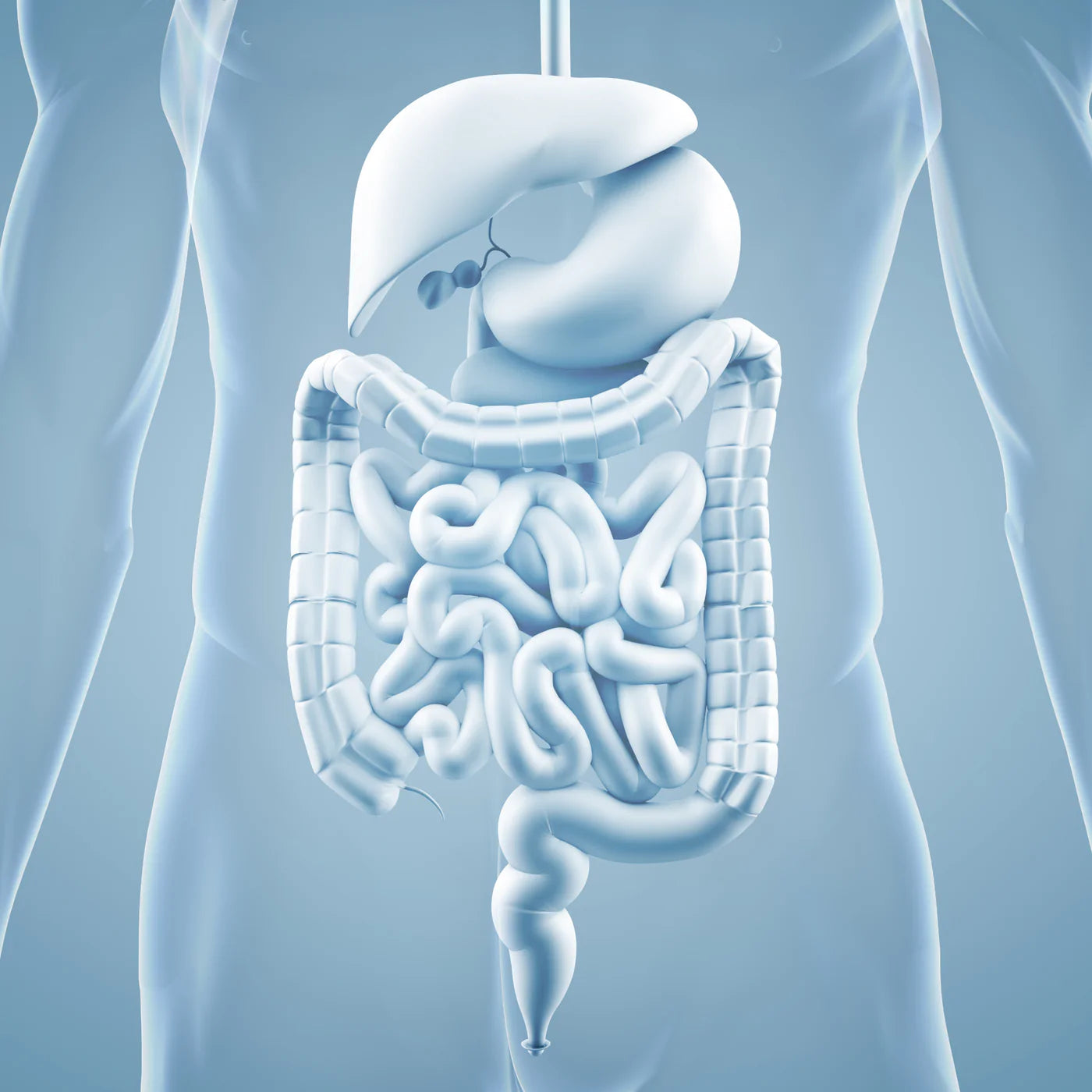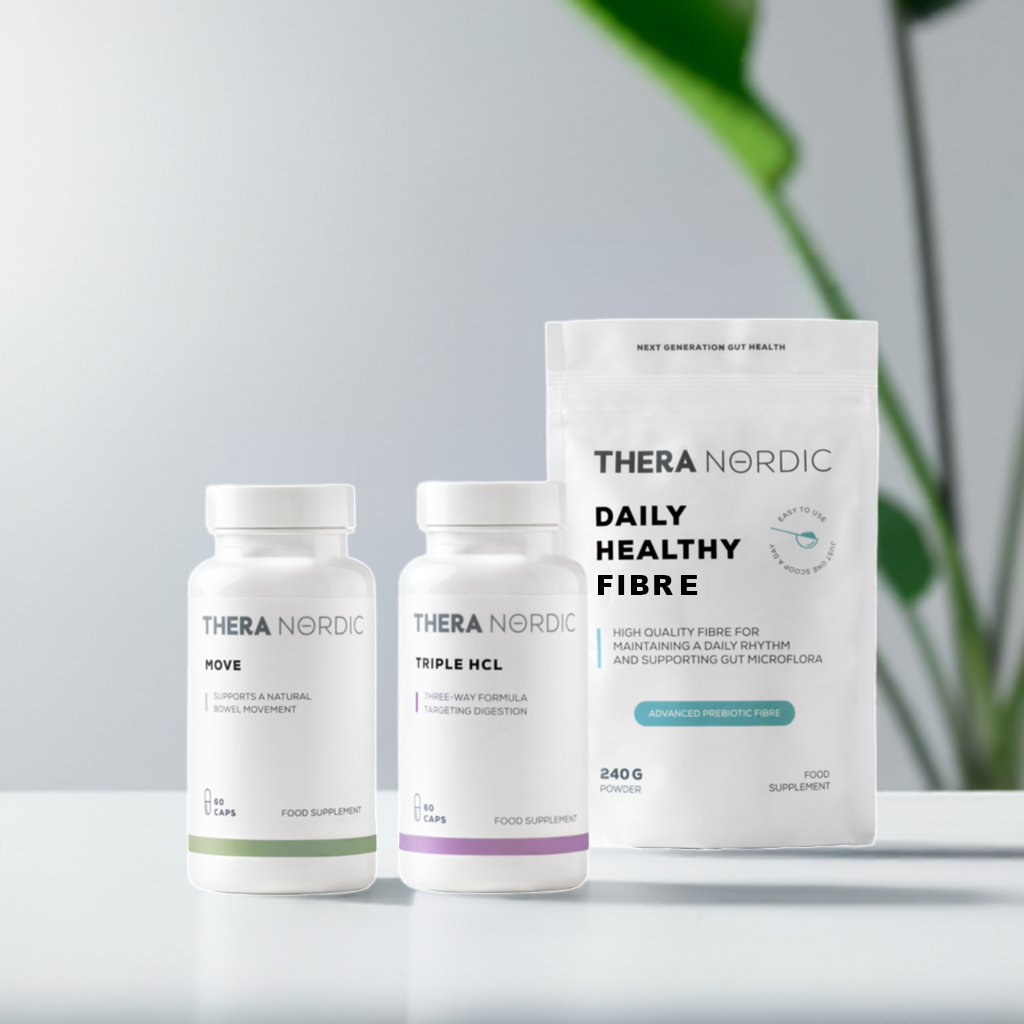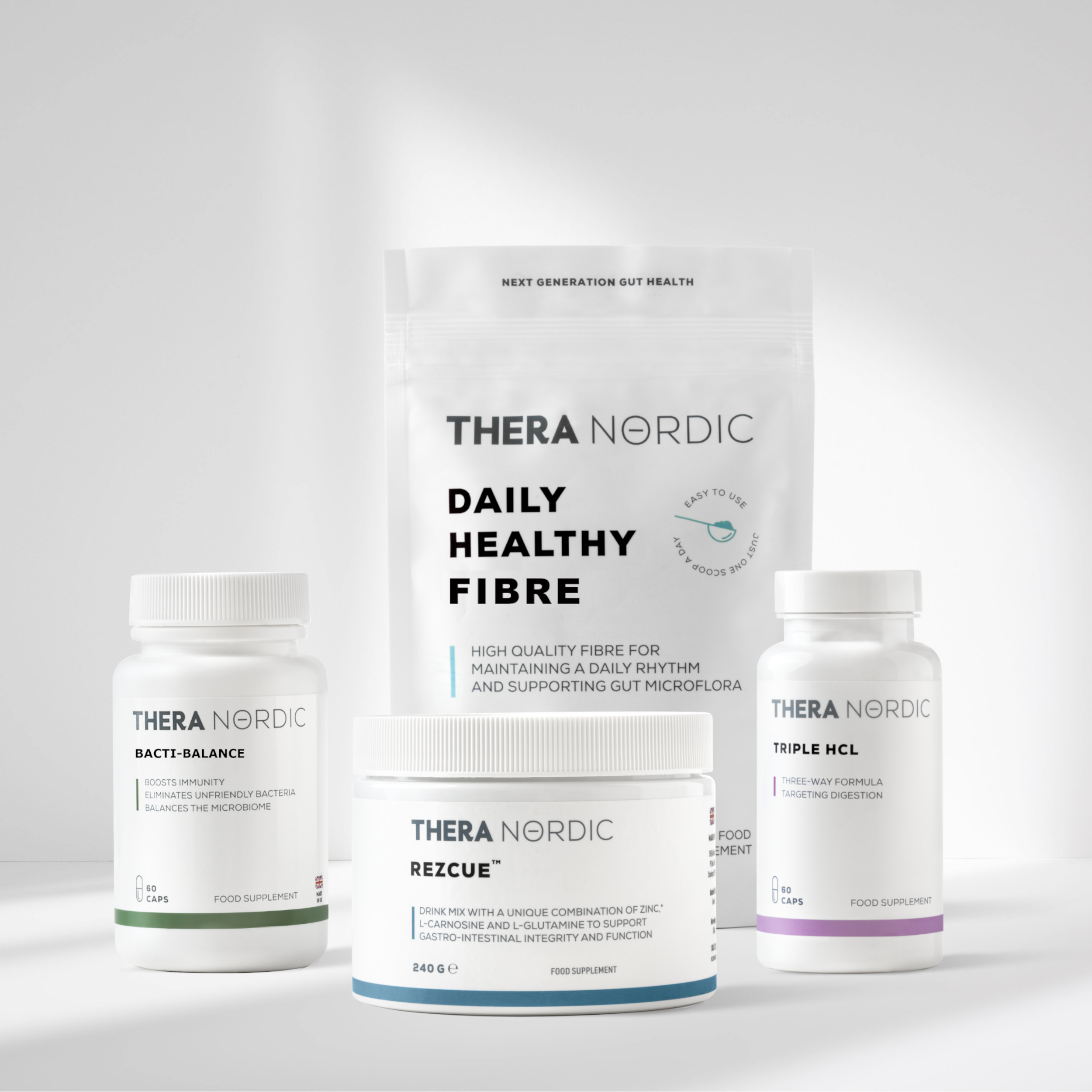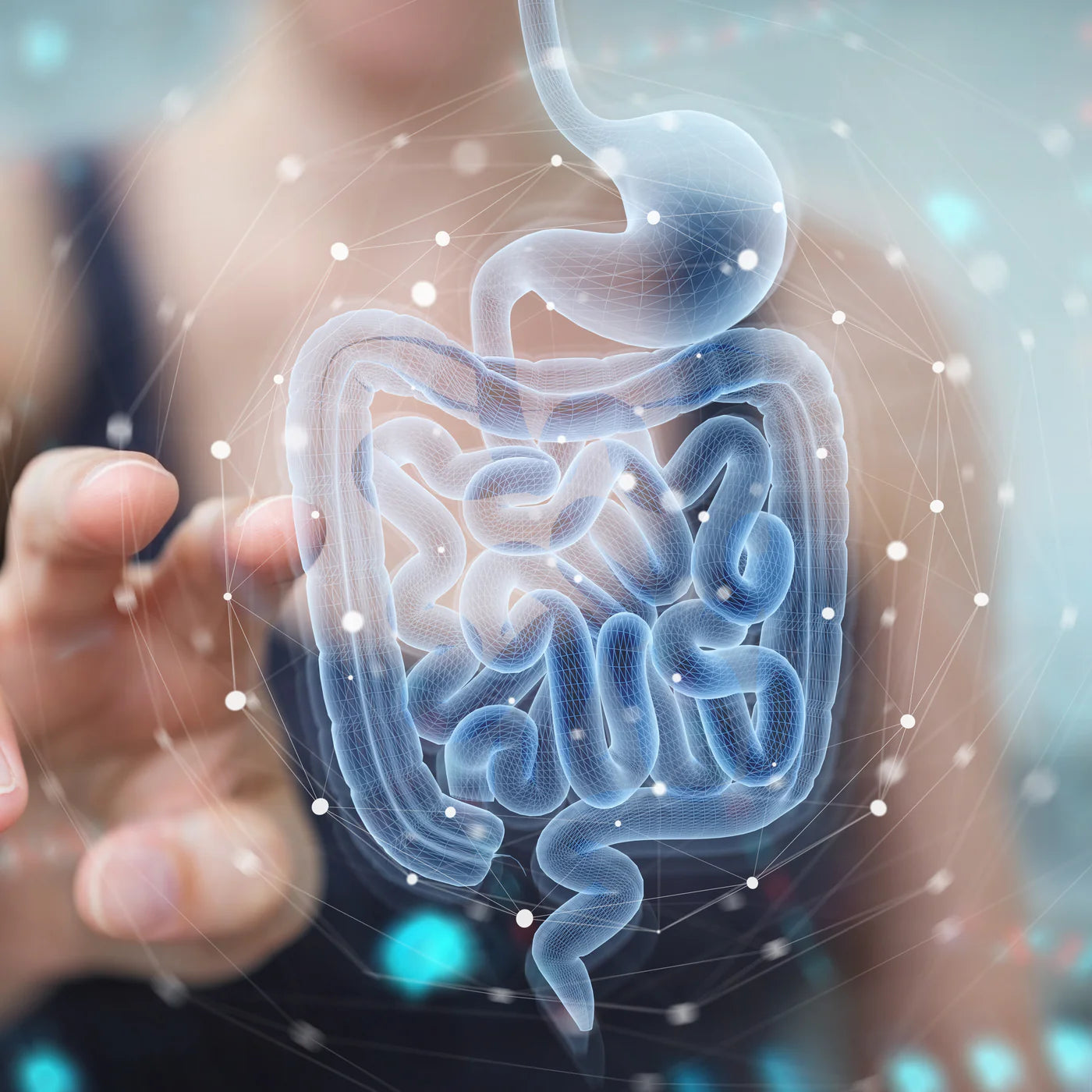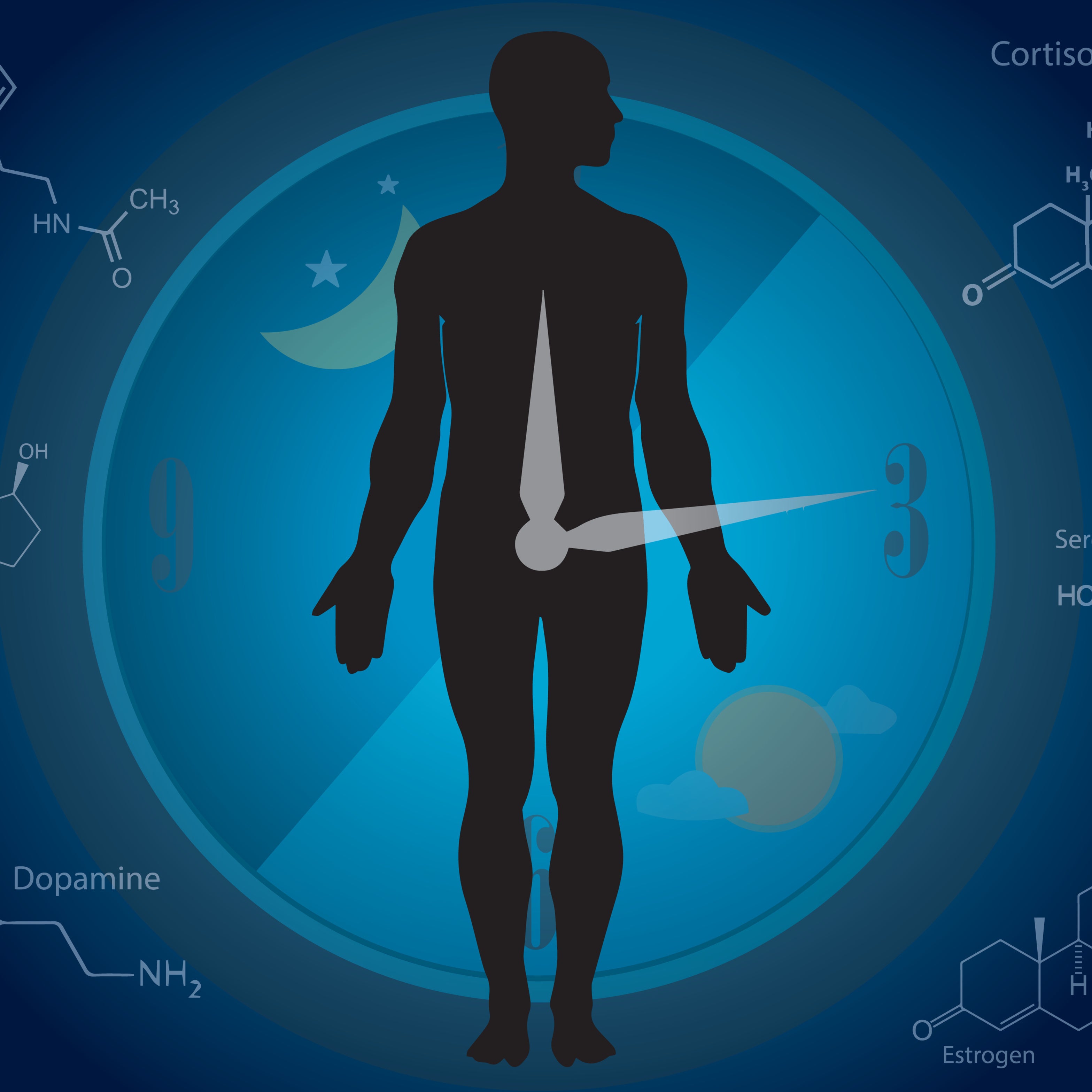Welcome to Unit 3
In this unit, we’ll explore natural solutions to relieve constipation. These strategies focus on lifestyle changes, but when you need a bit of extra help, supplements with natural ingredients can be a gentle and effective option to promote digestive health.
1. Increasing Fibre Intake
Fibre is one of the most important factors for maintaining regular bowel movements. Soluble fibre dissolves in water and helps soften stools, while insoluble fibre adds bulk, aiding stool passage through the intestines.
How Fibre Helps Relieve Constipation
Fibre adds bulk to the stool and retains water, making the stool softer and easier to pass. A systematic review published in the Journal of Clinical Gastroenterology showed that 75% of participants experienced relief from chronic constipation after increasing their fibre intake.
Fibre-Rich Foods
- Soluble fibre: Oats, apples, flaxseeds, and legumes.
- Insoluble fibre: Whole grains, wheat bran, and vegetables like spinach or carrots.

Soluble and insoluble fibres from fruits, vegetables, legumes, and whole grains help promote regular bowel movements and prevent constipation.
While it’s ideal to get your fibre from whole foods, if you struggle to consume enough, our Daily Healthy Fibre supplement offers an excellent source of prebiotic fibre. This supports your digestive system and helps your probiotics flourish.
Check out Daily Healthy Fibre here.
2. Other side of the coin: When not to increase fibre?
Fibre keeps things moving, but is not ideal for clearing out major blockages. If you are very constipated and have already increased your fibre intake, adding more fibre is not necessarily the answer. Stool can in some cases get compacted in the colon and more fibre will only contribute to the problem. In this case then some of the other recommendations in this unit might be the answer.
Also, if you constipation comes with severe abdominal pain or blood in stool, please seek medical attention.
3. Hydration and Its Role in Digestion
Water is essential to support fibre’s action in the digestive system. When you’re well-hydrated, fibre works more effectively, softening the stool and making it easier to pass. Without enough water, fibre can actually worsen constipation, making stools harder.
How Much Water Do You Need?
Drinking 2–3 litres of water per day is recommended to stay hydrated. However, individual needs may vary based on activity level, climate, and diet. Herbal teas and water-rich foods like cucumbers or melons are also excellent sources of hydration.

Proper hydration is essential for softening stools and making them easier to pass.
A 2018 study in The American Journal of Clinical Nutrition found that people who consumed higher amounts of water experienced lower rates of constipation, especially when combined with increased fibre intake.
Hydration Tips
- Keep a water bottle with you during the day to remind you to drink regularly.
- Include broth-based soups or herbal teas to maintain hydration during colder months.
4. The Role of Probiotics
Probiotics, live beneficial bacteria, help maintain a healthy gut microbiome, promoting smoother digestion and regular bowel movements. Lactobacillus and Bifidobacterium are among the most studied probiotic strains for relieving constipation.
Scientific Support for Probiotics
A 2014 meta-analysis in the American Journal of Clinical Nutrition found that probiotics, particularly Bifidobacterium, increased stool frequency and improved consistency in individuals suffering from constipation. Probiotics not only aid digestion but also prevent the buildup of harmful bacteria that can worsen constipation.
Probiotic-Rich Foods
- Yogurt with live cultures
- Kefir
- Sauerkraut
- Kimchi

Probiotic-rich foods like yogurt, kefir, and sauerkraut can support a healthy gut microbiome and improve digestion.
Probiotics thrive when they’re well-nourished, and this is where prebiotic fibre comes in. Our Daily Healthy Fibre provides prebiotic fibre to feed the probiotics in your gut, supporting better digestive balance.
Further Reading: For more on how probiotics help with constipation, see this article by Harvard Medical.
5. Magnesium for Constipation Relief
Magnesium is a natural muscle relaxant that can help stimulate bowel movements by relaxing the intestinal walls. It also pulls water into the intestines, softening the stool and making it easier to pass.
How Magnesium Works
Magnesium helps regulate muscle contractions in the intestines, promoting peristalsis (the wave-like movement that moves stool through the digestive tract). Additionally, magnesium acts as an osmotic laxative, meaning it draws water into the intestines to soften stool and encourage bowel movements.
Especially good forms of magnesium for this purpose are magnesium oxide and magnesium hydroxide.
A 2021 study published in Food Science & Nutrition found that low magnesium intake was linked to increased risk of constipation, with stool consistency and frequency improving when magnesium was supplemented.
Magnesium-Rich Foods
- Leafy greens like spinach
- Nuts and seeds
- Whole grains
If you feel that your diet is lacking magnesium or need occasional support, our Move supplement can be a natural, gentle option. While Move is formulated with magnesium, it also contains rhubarb extract, a natural digestive aid that helps stimulate the bowel gently.

Magnesium helps regulate bowel movements by relaxing intestinal muscles and pulling water into the intestines to soften stool.
6. Gentle Natural Laxatives
For occasional constipation relief, natural laxatives can be effective. These laxatives work by stimulating the intestines to promote bowel movements.
Common Natural Laxatives
- Psyllium husk: A soluble fibre that absorbs water and bulks up stool, making it easier to pass.
- Prunes: High in both fibre and sorbitol, a natural sugar alcohol that acts as a mild laxative.
- Senna: A natural herb that stimulates bowel movements by contracting the muscles in the intestines. However, senna should only be used occasionally.
A 2011 study in Alimentary Pharmacology & Therapeutics found that prunes were more effective than psyllium in relieving mild to moderate constipation.
Actionable Task: Try Incorporating Natural Remedies
Incorporate one or more of these natural remedies into your daily routine:
- Increase your fibre intake through whole grains, fruits, and vegetables. If needed, use our Daily Healthy Fibre for added prebiotic fibre support.
- Stay hydrated: Aim for 2–3 litres of water each day.
- Add probiotic-rich foods like yogurt or kefir to promote a healthy gut microbiome.
- If you need a gentle, natural solution for occasional constipation, try Move—a magnesium and rhubarb blend designed for regularity.
Start with small adjustments and track your bowel movements to observe how your body responds.
Looking Ahead
In Unit 4, we’ll explore long-term strategies to maintain gut health and prevent constipation in the future. These strategies include maintaining a balanced diet, staying hydrated, and adopting healthy lifestyle habits for overall wellness.
Further Reading:
- Probiotics and constipation: Explore how probiotics help relieve constipation.




